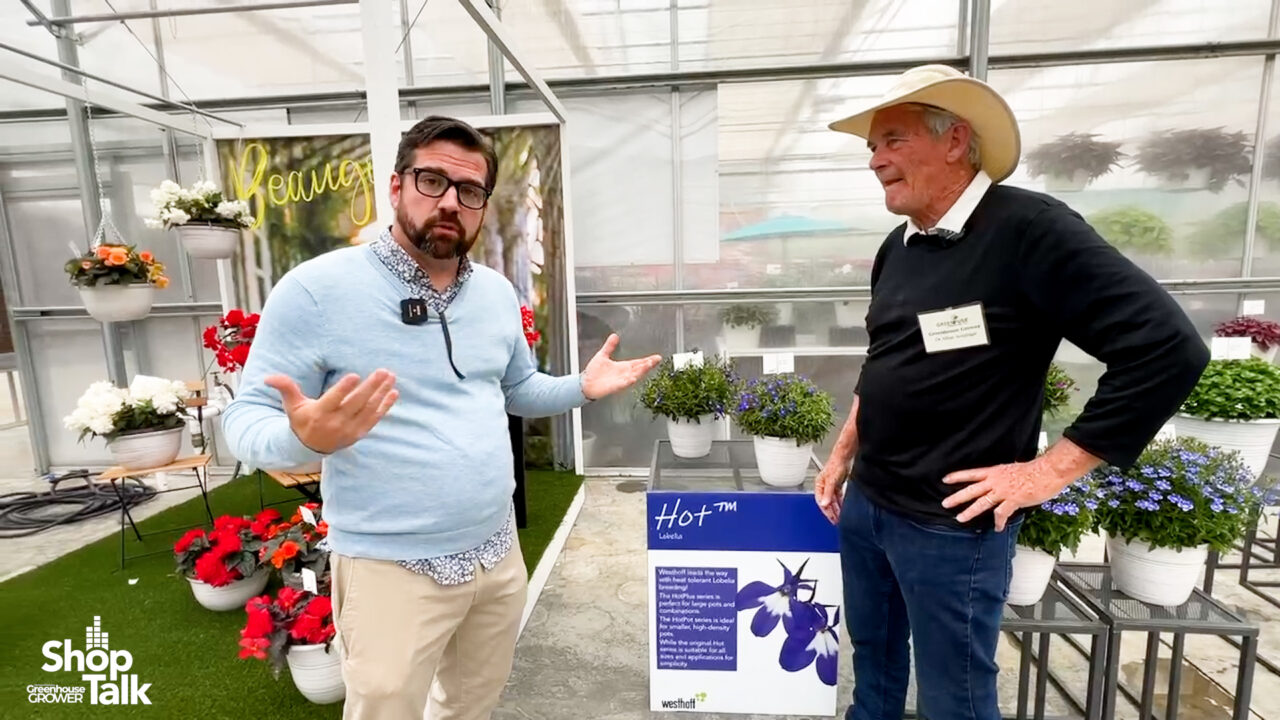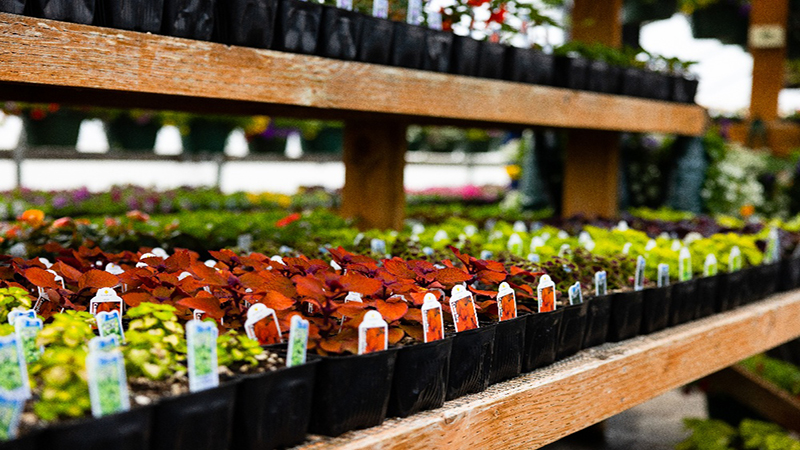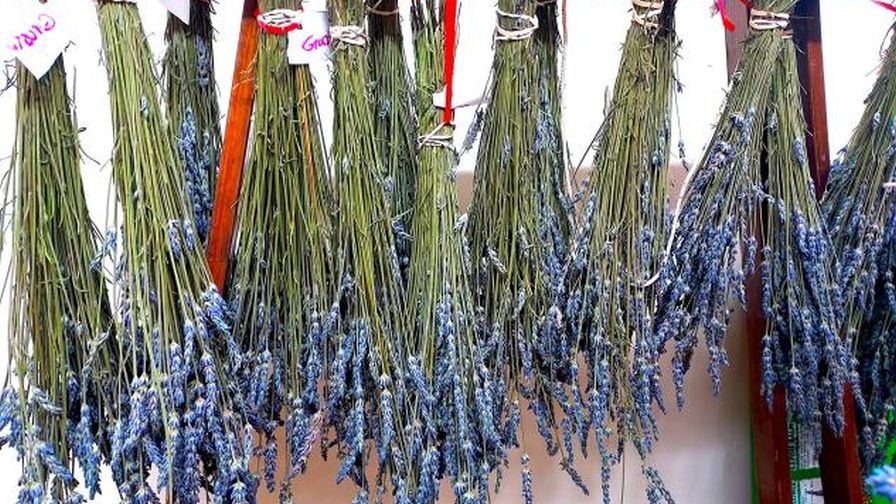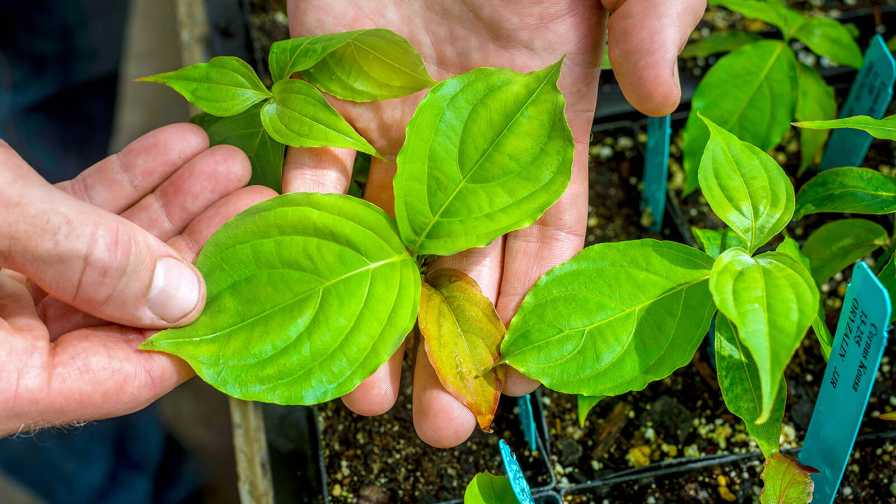How One Grower Is Managing Pests in Organic Crops
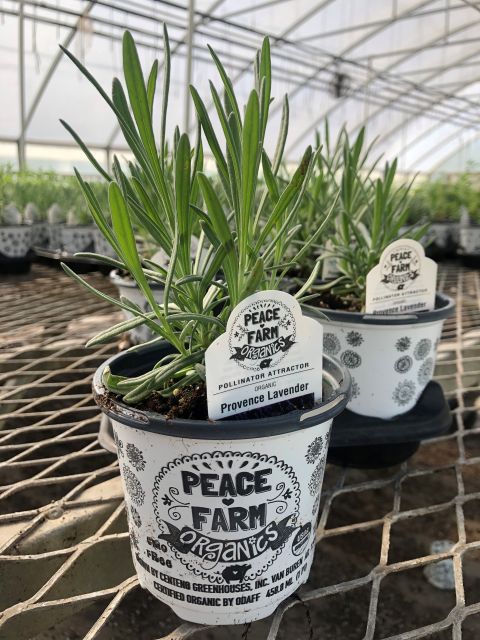
The lavender plant above is part of the Peace Farm Organics brand, offered by Parks Brothers Farm. Photos: Leigh Ann Parks
In the early 2000s, Parks Brothers Farm (one of Greenhouse Grower’s 2022 Top 100 Growers) began to get a lot of requests for certified organic herbs and vegetables. Among the majority of our company, the vision for organic production was not present. But with insistent encouragement from our Texas sales representative, we got our USDA organic certification in 2014 and created the Peace Farm Organics brand.
Crop protection has been one of the most challenging obstacles to overcome. Through much trial and error, and unfortunately crop loss, we have developed a recipe that works for us. Here is the knowledge we have gained through personal experimentation.
Our two main issues have been aphids and thrips. Azadirachtin is greatly effective for worm eradication but has not proven to be the treatment of choice for other pests. Pyrethrins are a close runner-up but still not a broad-spectrum form of biocontrol. Steinernema is very effective for fungus gnats. Isaria fumosorosea was a total fail for us. Bacillus amyloliquefaciens works well on our basil. I have tried aphidoletes, praying mantis, and lacewings. Of those three, the lacewings are our favorite and while they are not 100% effective, they do the best job of keeping aphids and thrips at bay. The downside of lacewings is how much the ants love them. When it gets cold outside, the ants want to move their party inside the greenhouse and can wipe out all of our lacewing eggs overnight. This year, we have used a low pH hypochlorous (HCIO) product from Gardener’s Touch that has been very effective on aphids and fungus gnats. We are just getting into the thrip season so I am not sure if it will be 100% effective on those.
It is very encouraging to attend the trade shows and see more biologicals being produced to help support organic growing. I have heard a lot of chatter on social media this year about how organic is “not really organic” because we still use pesticides and how unfair it is to the consumer to have to pay more for less pesticides. That is not a realistic view of organic growing. The process of providing a nice, truly organic product for the consumer is far more difficult and involved. I can only speak for Parks Brothers, but we are committed to growing truly organic products with little or no pesticides, even the approved ones. It is my hope that we continue to make progress in the area of biocontrols to make this a reality.






